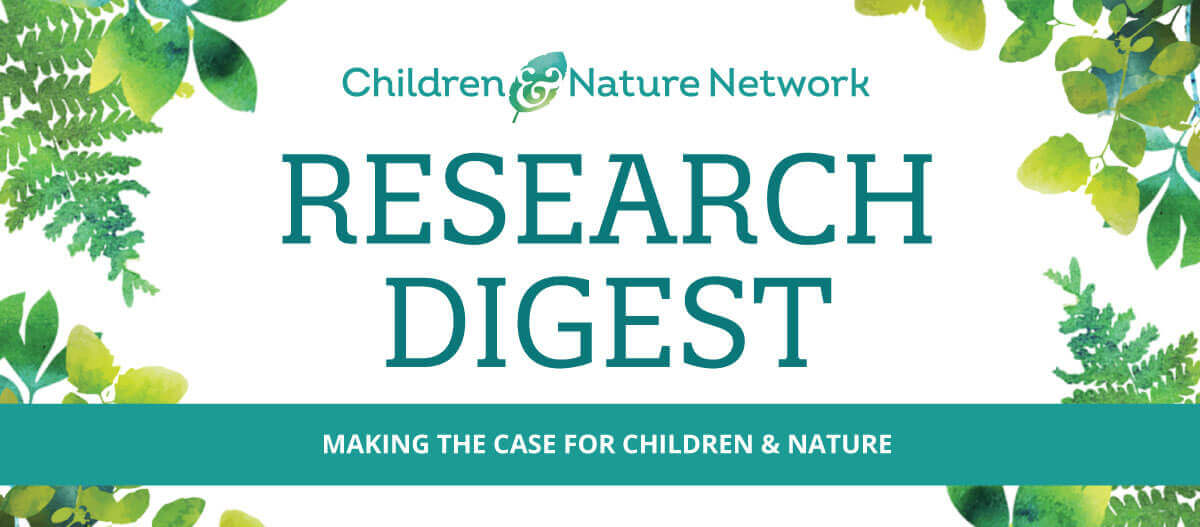RECOMMENDATIONS FOR PROMOTING SOCIAL-EMOTIONAL DEVELOPMENT THROUGH NATURE CONNECTION
The movement to reconnect children with nature includes initiatives to engage children in nature-based play and learning activities in school and related settings. Research studies document multiple benefits associated with such initiatives, including pro-environmental attitudes and behaviors, increased well-being and improved academic performance. Some of these benefits were featured in the August 2020 and August 2021 Research Digests.
The studies in this August 2023 Digest focus on a specific associated benefit for children, that of increased social-emotional learning (SEL), which is sometimes defined as the process of developing the self-awareness, self-control and interpersonal skills necessary for success in school, work and other aspects of life.
Social-emotional assessment tools used in some research studies address five interrelated areas of social and emotional competence: self-awareness, self-management, social awareness, relationship skills and responsible decision-making. The studies in this Digest address one or more of these areas of SEL and add support to the understanding that connectedness to nature (C2N) and SEL are positively related. Findings from these studies also support the following six recommendations for practice.





